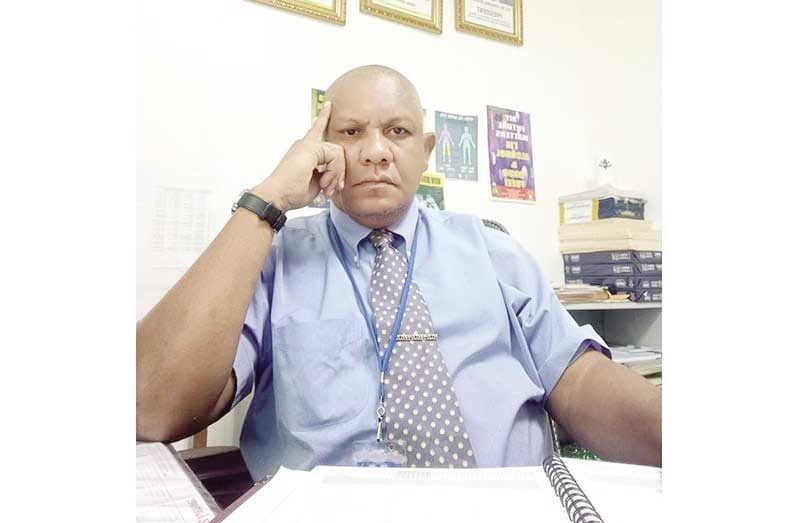ENCOURAGING the public to capitalise on the services offered by the Ministry of Health via the Mental Health Unit, clinical psychologist and Head of Psychology Services, Training, and Education, Dr Mark Constantine, emphasised that people should take pride in seeking help for themselves or a loved one rather than focusing on the stigma associated with their mental problems.
Recognising that there are several challenges that contribute to mental health issues, Dr Constantine said human beings in general are faced with different levels of stress on a daily basis, and Guyanese are no different from the rest of the world.
According to him, there is a lot more to stress than just what someone feels, and sadly, a number of school-aged children are affected by it.
Dr Constantine explained that in Guyana they have observed that school-aged children as well as adults are involved in self-harm such as cutting, anxiety, panic attacks, and depression.
He also added that stress is a part of life, but it is how we cope with it that makes the difference in our everyday lives.
“These are some of the common things that people suffer with or have challenges with in Guyana, and it is no different than any other part of the world. As long as there are human beings around and you are alive, you will have to deal with stress and all these factors of mental health. However, one of the major challenges is how we deal with it when it creeps up on you in life; how do you handle it and how do you cope with it?” the doctor explained.
Furthermore, Dr Constantine said that the MoH has a national mental health strategy and plan that is in the process of being updated from 2023 to 2030.
According to him, the national plan is a very comprehensive one that allows everyone in every region to be involved and recognise that mental health is everyone’s right and should be treated as one priority.
While they are working to eradicate stigma associated with mental health problems and bringing more awareness to mental health, the psychologist also mentioned that the government, along with the MoH, recognises that people are faced with real issues in mental health and that everyone deserves the right to the best services.
Meanwhile, Dr Constantine recently reported in an article published in the Guyana Chronicle that there is a significant decrease in suicide attempts and suicides as of recent, which according to him is primarily because of the proactive work that the Mental Health Unit and the Ministry of Health have been putting in.
While highlighting several risk factors for suicide, such as relationship problems, drug or alcohol addiction, depression, schizophrenia, and chronic anxiety, Dr Constantine also dispelled some myths surrounding suicide.
According to him, people do not attempt to, or commit suicide because they want to die.
He said: “That, of course, is a myth. That is not a fact. Persons commit suicide because they wanted to end the pain; they wanted to end the struggle. They wanted a solution to whatever challenges they were dealing with.”
He went on to explain that for a person suffering from clinical depression, life can feel like standing in a tunnel with no light at either end.
“When they look left or in front of them, there’s no light. They look behind, and there’s no light either. What we have to do is show them the light.”
Dr Constantine further stated that individuals in need can receive free therapy and counselling services from the Mental Health Unit, and people can seek assistance without worrying about being judged or exposed. He also urged more people to use the resources at their disposal by saying, “Here, we practise confidentiality.”
Emphasising how awareness has grown over time and played a major role in the evolution of suicide prevention, Dr Constantine also highlighted that preventing suicide calls for teamwork, saying, “The prevention of suicide comes with a lot of awareness. We spread a lot of awareness. It is very important for me to say that trying to alleviate the scourge of suicide is not a one-man show. And we are not going to be successful if we approach it from that angle. It is basically everybody’s business to try to prevent suicide.
“As a result of that, the Ministry of Health and the Mental Health Unit… we have been partnering with different agencies and NGOs [non-governmental organisations] in trying to prevent this problem that we have. And we do so through training sessions, printing of educational materials, and awareness in schools. At the community level, we have partnered with NGOs that are doing a lot of work in this area. They have done so by going into communities across all 10 administrative regions and spreading the message of suicide prevention and awareness,” he added.



.jpg)








